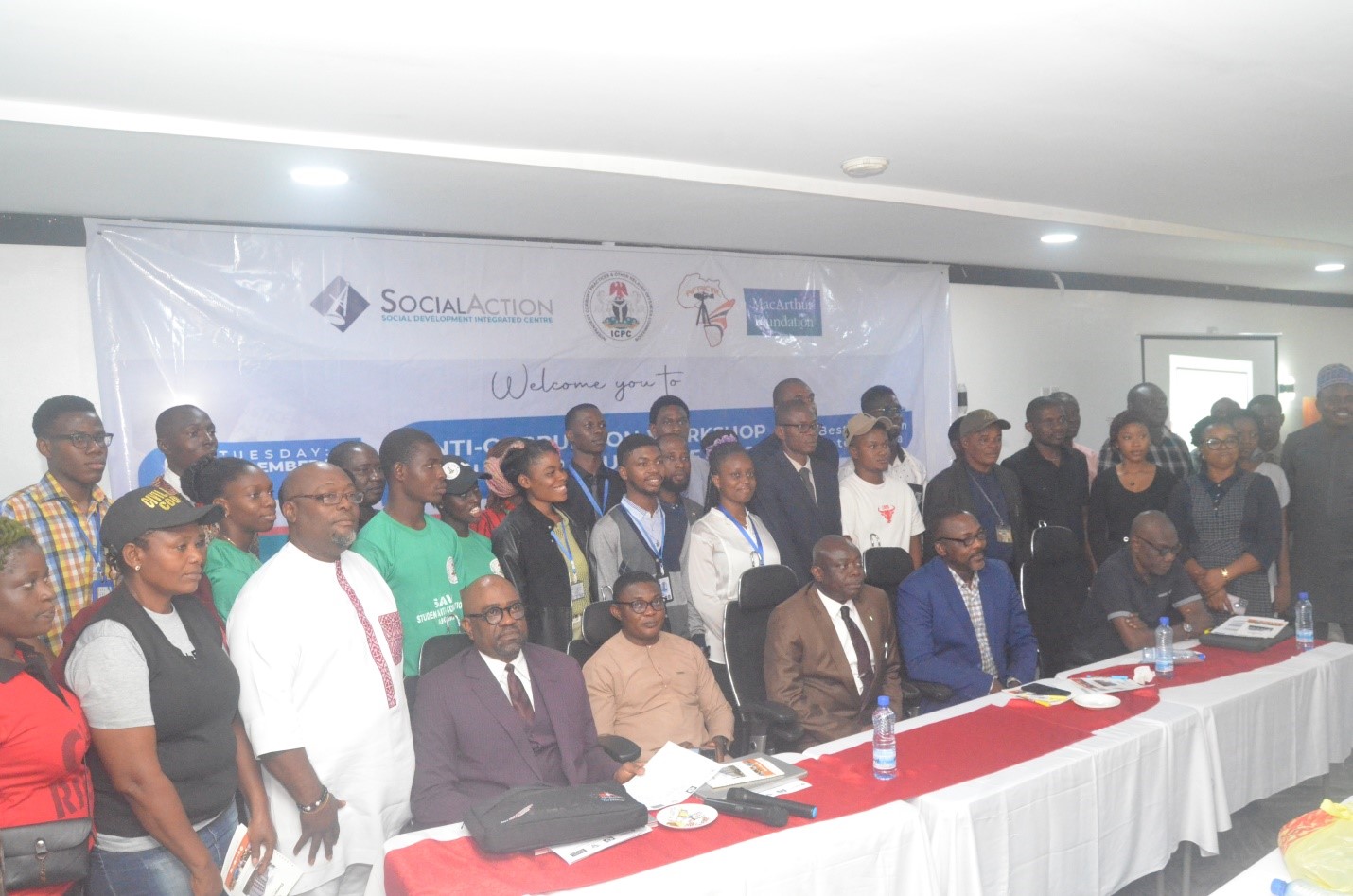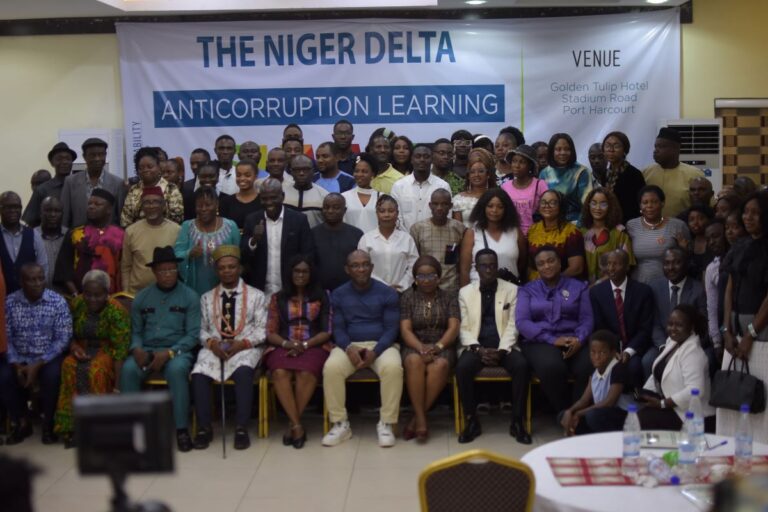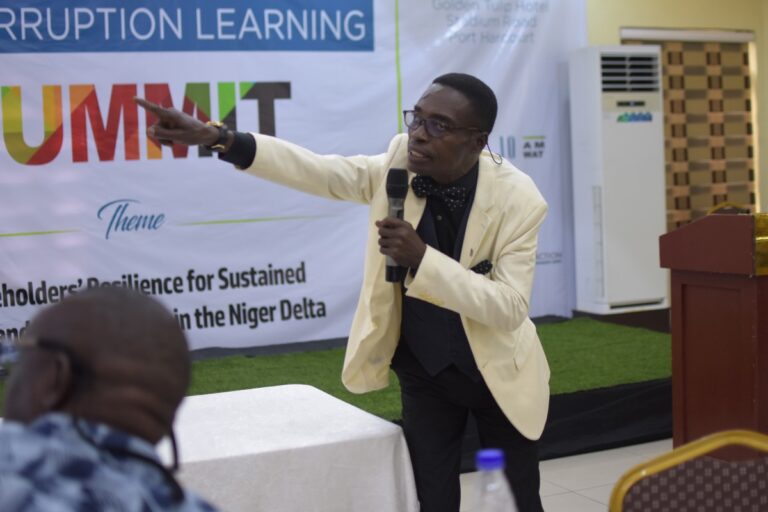Empowering Youth to Combat Corruption: Social Action Launches Anti-Corruption Vanguards in Schools in Collaboration with AFRICMIL and ICPC
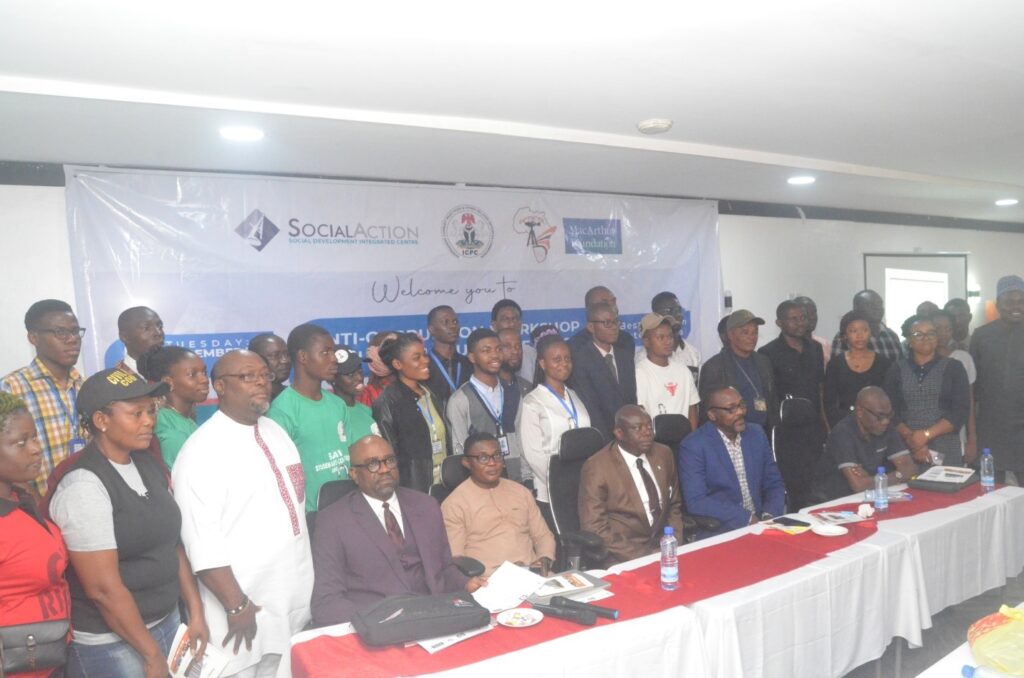
Social Action Nigeria has reaffirmed its commitment to empowering community structures in the Niger Delta to sustain the fight against corruption. On December 10, 2024, Social Action Nigeria, in collaboration with the Independent Corrupt Practices and Other Related Offences Commission (ICPC) and the Africa Centre for Media and Information Literacy (AFRICMIL), convened a significant state-level anti-corruption workshop titled “Youth Against Corruption: Mobilising for Behavioral Change, Whistleblowing, and Social Development.” This event highlighted the vital role of youth and communities in combating corruption while fostering a culture of transparency, accountability, and advocacy.
The workshop brought together a diverse range of participants, including youth groups, student organizations, members of anti-corruption networks, and representatives of the state’s anti-corruption coalition. Designed to deepen community engagement and awareness, it gave participants the skills and knowledge to drive behavioural change, advocate for transparency, and effectively utilize whistleblowing mechanisms to expose corrupt practices. A pivotal outcome of the event was the formal establishment of Students Anti-Corruption Vanguards in five tertiary institutions, a milestone that symbolizes a collective effort to institutionalize anti-corruption advocacy within educational spaces.
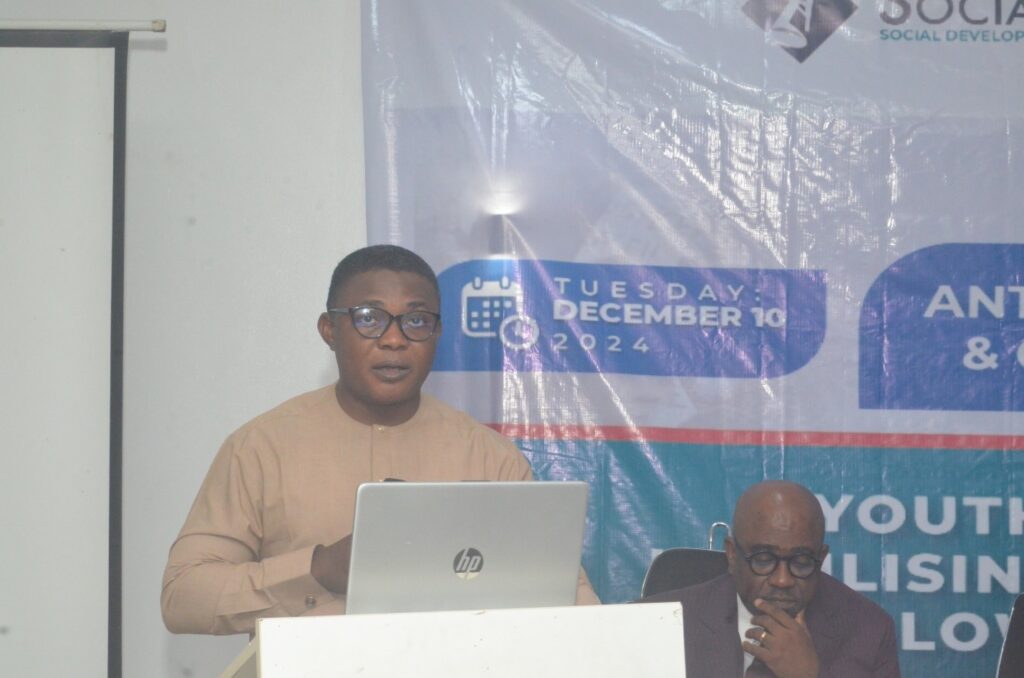
During the workshop, Social Action Nigeria’s Programmes Coordinator, Isaac Botti addressed the audience, stressing that corruption remains one of the most formidable obstacles to social and economic development in the Niger Delta. He explained how corruption undermines governance, weakens public service delivery, exacerbates inequality, and erodes public trust in institutions. These effects disproportionately impact youth, whose potential as future leaders is stifled by corruption’s pervasive grip. He passionately urged young people to rise to the challenge, highlighting their energy, innovation, and ability to sustain long-term anti-corruption efforts as invaluable assets.
The keynote address by Barrister Clifford Okwudiri Oparaodu, Secretary to the ICPC, further emphasized the need for youth-driven change. He spoke of the transformative power of behavioral shifts among young people and their potential as catalysts for community development. Barrister Oparaodu urged participants to recognize their critical role in exposing corrupt practices within their communities, institutions, and society at large. He assured the youth of ICPC’s readiness to support their efforts and provide full protection to whistleblowers, reinforcing the importance of active youth participation in fighting corruption.
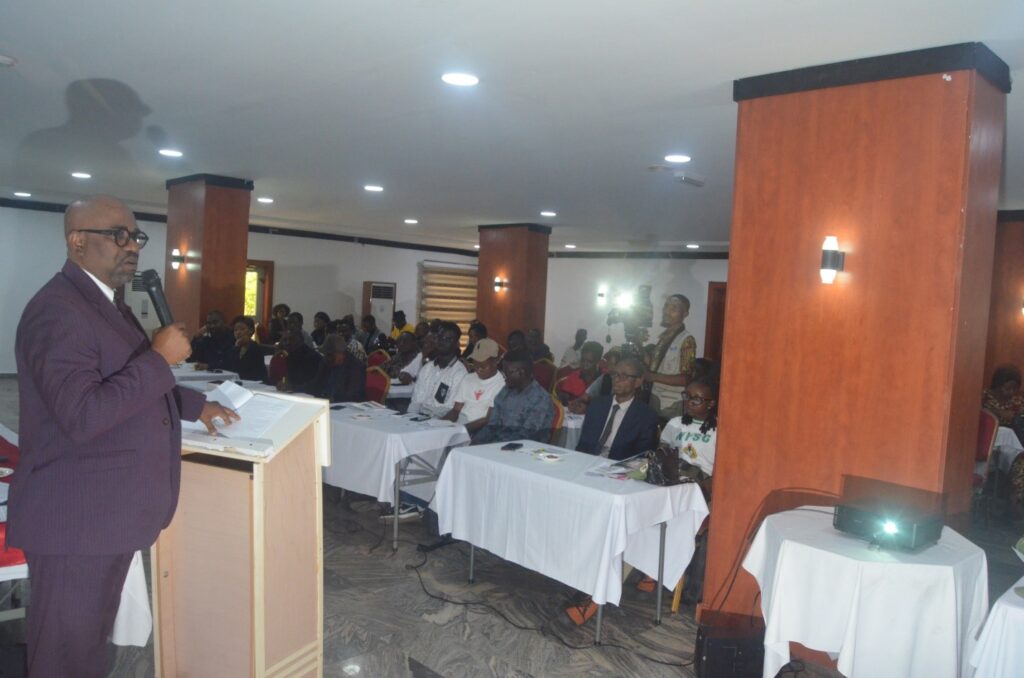
One of the key sessions, led by Mr. Godwin Onyeacholem from AFRICMIL, focused on whistleblowing as an essential tool for anti-corruption advocacy. His presentation walked participants through step-by-step approaches to effectively utilize whistleblowing policies. He encouraged attendees to embrace the principle of “see something, say something,” underscoring the power of accountability tools such as the Beneficial Ownership Register, which was also discussed during the workshop.
The event created an environment conducive to meaningful engagement between community actors and anti-corruption agencies. It strengthened the anti-corruption coalition within the state and facilitated dialogue on the challenges and strategies needed to sustain anti-corruption efforts. By building the capacity of community and youth stakeholders, the workshop laid the foundation for a more inclusive and robust fight against corruption in the Niger Delta.
The establishment of Students Anti-Corruption Vanguards stands out as a significant achievement, as it aims to embed anti-corruption values among students and create a network of young advocates committed to transparency. This initiative represents a forward-looking strategy to instill a culture of accountability and integrity at an early stage, ensuring that the next generation is equipped to combat corruption effectively.
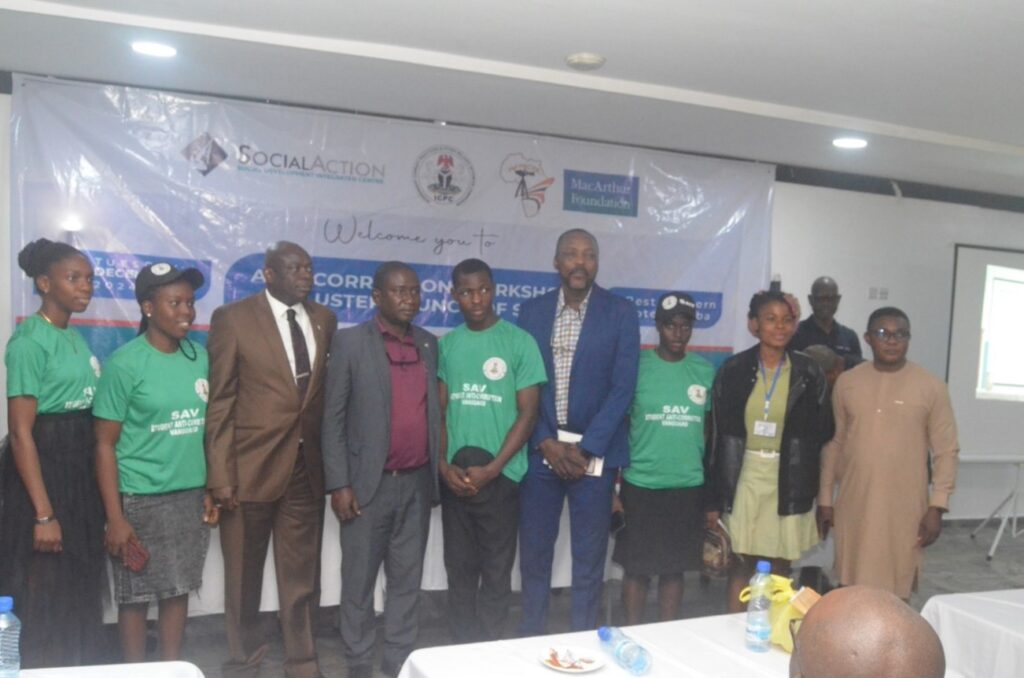
The workshop was a testament to Social Action Nigeria’s dedication to driving grassroots anti-corruption efforts and empowering communities to challenge systemic issues. By fostering collaboration with key partners like ICPC and AFRICMIL, Social Action has demonstrated the value of collective action in addressing corruption’s pervasive effects and building a more equitable society.

